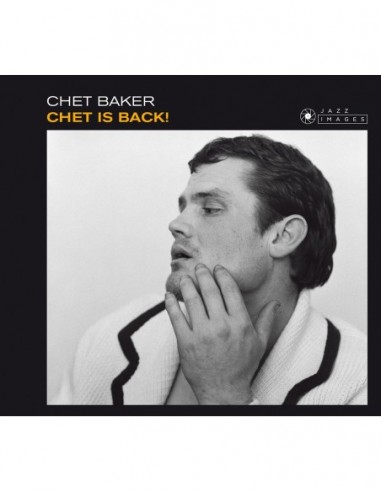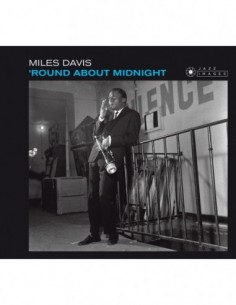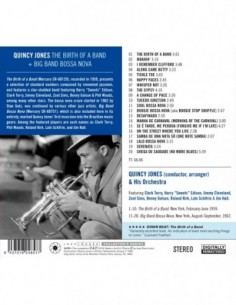Chet Is Back!
Chet Baker
THE JEAN-PIERRE LELOIR COLLECTION
INCLUDES 4 BONUS TRACKS
DELUXE PACKAGING – Thick cardboard Fold Open Digi-Sleeves with inner sleeves
Chet Baker recorded "Chet Is Back!" (RCA Victor PML-10307) on January 5, 1962, just three weeks after having been released from his drug-related imprisonment in Italy. He was accompanied on the LP by a number of highly talented European players, among them two Belgian stars: tenor saxophonist, flutist, and composer Bobby Jaspar, and guitarist René Thomas. Baker didn’t sing on this album, which features him performing spirited trumpet solos. A complete 1959 instrumental session that was also recorded by Chet in Italy in a sextet format has been added here as a bonus.
PERSONNEL:
CHET BAKER, trumpet
BOBBY JASPAR, tenor sax & flute
RENÉ THOMAS, guitar
AMEDEO TOMMASI, piano
BENOÎT QUERSIN, bass
DANIEL HUMAIR, drums
Rome, Italy, January 5, 1962.
BONUS TRACKS (9-12):
Chet Baker Sextet: Chet Baker (tp), Glauco Masetti (as),
Gianni Basso (ts), Renato Sellani (p), Franco Cerri (b),
Gene Victory (d), Giulio Libani (arr).
Milan, Italy, September 25, 1959.
TRACKS:
01. WELL, YOU NEEDN’T
02 THESE FOOLISH THINGS
03 BARBADOS
04 STAR EYES
05 OVER THE RAINBOW
06 PENT-UP HOUSE
07 BALLATA IN FORMA DI BLUES
08 BLUES IN THE CLOSET
09 LADY BIRD
10 CHERYL
11 TUNE UP
12 LINE FOR LYONS
- Format
- CD
- Discs
- 1
- Label code
- 38014
 Cookie preferences
Cookie preferences




















































